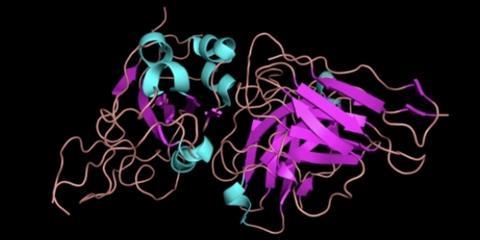Violinist Hyung Joon Won on the healing power of Antibody Music
joon #joon

My dream while attending The Juilliard School was that music could solve social problems and save human lives – a bit further from a violinist’s duty to play only a beautiful melody.

However, when Tod Machover, a professor at MIT Media Lab, released ‘Gamified’ – music based on medical information that 40Hz gamma sounds are helpful in treating Alzheimer’s patients – I thought it might no longer be a dream.
In 2020, coronavirus came to Korea where I live. Almost every concert was cancelled and many musicians lost their jobs. However, due to my faith in music, I visited hospitals and played violin for the quarantined Covid-19 patients and medical staff.
At the time, there was an infected baby and her family who visited Korea from Cambodia and were quarantined at the hospital. They felt and expressed their condolences after listening to my playing of Gounod’s Ave Maria & Elgar’s Salut d’amour. As a result, I became convinced that music not only heals human emotions, but also musicians can contribute something to the pandemic with music.
My hospital performance led to an encounter with Markus Buehler, an MIT professor. He translated the spike protein of the coronavirus into a one hour and 49 minute long musical scale. It was seen to be a potential innovative alternative to curing viral infections through the vibrational frequency of proteins where a vaccine had not yet been released. After Professor Buehler arranged it for solo violin, I played Coronavirus Music(Viral Counterpoint of the Covid-19 Spike Protein) in the Demilitarised Zone (DMZ) separating South Korea and North Korea in August 2020 – a place which has been difficult for civilians to enter for more than 70 years.
Professor Buehler and I continued to exchange opinions and in March 2021 Covid-19 Antibody Music (Protein Antibody in E-minor) finally enjoyed its world premiere. From a musical point of view ’viral’ music and ‘antibody’ music have very different styles and moods. Viral music is slow and repetitive and feels a bit melancholy, while antibody music consists of notes with bright and varied beats. Both pieces use a theory that Buehler devised for translating protein structures into musical scores: the two proteins – antigen and pathogen – have 20 amino acids, which can be expressed as 20 unique vibrational tones. Proteins, like other molecules, vibrate at different frequencies, a phenomenon Buehler has used to ’see’ the virus and its variants, capturing their complex entanglements in a musical score.

The piece, Covid-19 Antibody Music has racked up more than a million downloads on SoundCloud and we are planning on making more Antibody Music concerts this year.
There are many research papers that music – or vibrational frequency – stimulates human emotions and increases immunity and it is currently widely used in music therapy. In the future, music will be used to provide therapeutic value against the threat of viral diseases. I hope that this opinion from a musical perspective will help protect human lives from the ongoing virus threat.
Watch: Violinist plays classical music for South Korea hospital patients
Watch: Peace Through Music: violinist Hyeong-Joon Won